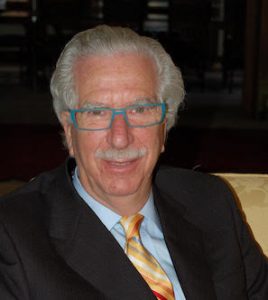
Addiction medicine physician Dr Naham ‘Jack’ Warhaft is the co-founder of Australian Doctors in Recovery.
Australian Doctors in Recovery has been providing a safe place for doctors to support each another in recovery from alcohol and drug addiction for the past two decades. Tessa Hoffman speaks to co-founder, addiction medicine physician Dr Naham Jack Warhaft.
In the throes of his own addiction to powerful painkillers and sedatives, Dr Naham “Jack” Warhaft was utterly absorbed with the task of obtaining his next high.
It was 1990 and Dr Warhaft, who was then working as an anaesthetist in Melbourne, had become dependent on opiates, benzodiazepines and alcohol, spiralled into a deep depression.
“It affected my mental health, my relationships, you get to the point where your whole life is consumed with the task of obtaining and consuming drugs … I knew it was wrong, but I couldn’t stop,” he tells the limbic.
But two years later Dr Warhaft surprised himself when he was able to break the cycle of substance misuse through a four-week stint in a rehabilitation hospital, counselling and engagement in the 12-step programs Narcotics Anonymous and Alcoholics Anonymous.
“When I got into stable recovery, my whole life changed.”
From there was a natural progression to want to help others.
In the mid 1990s, Dr Warhaft co-founded the national support group Australian Doctors in Recovery.
The group, intended to be a safe place where doctors can share their experience and support one another through the process of recovery, meets for an annual conference every March.
To date, it has supported about 150 doctors who are at some stage of recovery from addiction to alcohol, illicit and prescription drugs.
“We’re not a substitute for NA or AA, we are a supplement,” Dr Warhaft says. “It’s an extra point of contact that enables us to share our experience at a level that may not be appropriate at any AA or NA meeting. For example, many of the doctors have had experiences with medical boards or unusual forms of drug use.”
Between meetings, Dr Warhaft acts as the central point of contact for doctors seeking help for their addictions, saying currently he’s only aware of doctor-specific addiction services in Sydney and Melbourne.
The patterns of use and misuse have not changed much over the past few decades, says Dr Warhaft, who moved out of anaesthetics in the early 2000s to attain fellowship in addiction medicine, which he continues to practice in Melbourne. He was also the inaugural medical director of the Victorian Doctors Health Program.
“The predominant drug is still alcohol and many [doctors] are addicted to prescription opiates: morphine, oxycodone, benzodiazapines. Pethidine used to be a common drug of addiction but that’s rarely seen, due to a change in prescribing patterns.”
However, he does not believe that doctors are at higher risk of addiction due to unique stressors present in medical practice, noting that the incidence of addiction in doctors is about 5% – consistent with the broader community.
“I think the difference in being a doctor is their access to different sorts of drugs than the general public have. So, if a doctor has got addictive disease he or she may turn to a drug like Xanax (alprazolam) or oxycodone, whereas if they were not [a doctor] they would probably turn to alcohol.”
But medical practitioners do face significant additional barriers to recovery from addiction, he says.